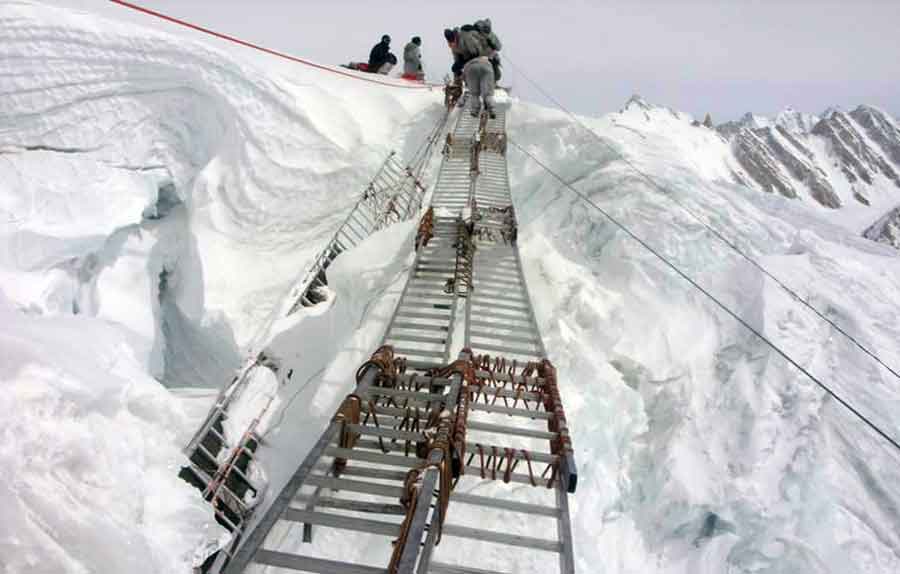“The inability to think beyond rigid assumptions and perceptions in matters strategic have often led to surprise, failure and disaster”
Mr Stephen Cohen needs to be complemented for flagging the attention of India’s leadership and her strategic community to the direction modern India needs to take towards meeting her strategic destiny. His (timely) book “Arming ‘without’ Aiming needs to be considered seriously, not merely because of the ways and means that have been recommended, but because of the urgency. Security issues and matters of strategic import can no longer be remain on the political backburner as the rapid pace at which the world is altering well-established security equations, both in the immediate region and across the globe and the role India can play in balancing relations mandate serious consideration and effort. This is an important task for the new leadership in New Delhi as they would have the opportunity and the support of the major players.
India remains a soft target because she has invariably taken a re-active approach, and the effect gets compounded since the articulation of her strategic outlook is not only defensive, but pacifist by nature.
Without delving into the merits and demerits of what Mr Cohen has prescribed for India’s security, issues that merit a re-visit are flagged for re-setting the mental mould of the new leadership as also of the well-entrenched Praetorian Guards in South Block for taking matters of security head on. In view of the major changes sweeping the globe, these have become essential for what portends to be an uncertain strategic future, a future with which the new leadership has to contend with squarely as the time for making political statements in the din and dust during electoral campaigning is now over. It also needs to be highlighted that beyond the rhetoric of ensuring the safety and security of the nation, no party attempted to make clear-cut policy statements relating to matters of security.
Modern India is restless to achieve her strategic future and for doing so, she has to arm herself, and do so with a sense of urgency. For that she not only needs to be pragmatic in her approach and ensure more than just a bang from her high end purchases and therefore need to pay heed to Mr Cohen and aim deliberately before arming.
The Issue of Defence versus Security
Defence and Security are words that are often used interchangeably, whereas, the differences between them are basic. ‘Defence’ means taking defensive action(s) against any action or actor. While, the dictionary does not amplify if the action taken is reactive or pro-active, by implication, it is merely a reaction or a counter-action. This opens up the larger point that is being made. While professing a defensive strategy makes for good diplomacy, it puts the defender on the back foot as the initiative is allowed to be with the opponent. At the same time, by professing a strategy of ‘Active Defence’ (China), ‘Offensive Defence (Pakistan) and ‘Retaining the right of Pre-emption’ (USA), nations seek to take the initiative, which as any strategist (military or otherwise) would tell is invaluable in war. India remains a soft target because she has invariably taken a re-active approach, and the effect gets compounded since the (official) articulation of her strategic outlook is not only defensive, but pacifist by nature. While many examples of this mindset can be recounted to exemplify the point, the fact that her army is disproportionately organised as Holding (now called Pivot) and Strike Forces, and the bulk of her forces remain tied down for (static) defensive tasks, instead of being organised to take the battle to the enemy is testimony of this mindset.
…the leadership of modern India needs to get out of the defensive mindset and think beyond ‘reacting’ as no victory has ever come from merely being defensive.
On the other hand, nations organise, structure and prepare their militaries for undertaking offensive tasks, while static tasks like defence of frontiers are left to Border Guards (Mujahids and Frontier Corps in the case of Pakistan and Border Guard in the case of China). In the light of the above, not only is there a requirement to free the potential of the army for undertaking offensive actions by defining a more definitive role for the Para Military Forces (PMF), even more important is the requirement for the leadership of modern India needs to get out of the defensive mindset and think beyond ‘reacting’ as no victory has ever come from merely being defensive.
Security is another issue that is often obfuscated in debates and discourses. Security simply means the sense of being secure and by extension, being ‘free of danger.’ Thus, while defence adds to the sense of security of the nation at large, security perse is beyond what defence can provide on its own. While there are many dimensions that contribute to a nation’s security, in military terms, it boils down to external security, which is essentially a matter for the military, and internal security, which is an issue of governance. In the ultimate analysis, the nation requires to ensure both external and internal security as the sense of being secure can never be complete without both. Given the well-entrenched defensive mindset and years of neglect, this is a task of herculean proportions, but can still be managed if addressed with the seriousness and earnestness the issue deserves.
Traditionally, nations has kept the charter of Internal Security under the Interior Ministry while External Security is the purview of the Defence Ministry. Though there is nothing wrong in continuing with this approach, there is a need for greater integration of their efforts and for generating the required synergy between the two ministries. In view of the increasing spectre of Non Traditional Threats and from Non-State Actors, there is an urgent need of re-evaluating, re-defining and re-engineering the roles of the Civil Police, PMF and also of the Intelligence Agencies for energising their latent potential and for synergising their application with the military. This requires serious consideration along with the appropriate legislation; more importantly, it requires the will and the determination to transcend turfs.
If India’s deterrence is to appear robust and visible, it would add to her sense of security and provide her the space to concentrate on development exponentially.
In view of the synergy required and the potential that could be unleashed internally by these reforms, there is the requirement for the new government to consider the appointment of a suitable minister to oversee the functioning of both ministries concurrently. Admittedly, the Prime Minister has been the person who traditionally has generated the required synergy between the ministries. However, if past experience is to be relied upon, this is a fulltime job and a Senior Minister with the exclusive charter of Security – both external and internal is the need of the hour. Having said that, whatever, be the form or working arrangement, there is a distinct requirement to think beyond turfs and be able to synergise application of the nation’s forces – both military and the PMF in an optimal manner. At the same time, the functioning and effectiveness of the Intelligence agencies also require to be reviewed and perhaps the time for the complete implementation of the recommendations of the Kargil Report need to be ensured.
Integrated Planning, Force Structuring and Synergy for Combat Application
Planning for meeting future challenges is invariably complex as various requirements have to be concurrently met; since resources are and will invariably remain finite, prioritisation is always required. In the absence of a Chief of Defence Staff (CDS) to oversee the requirements of all three services, the Chiefs of Staff Committee, headed by a Chairman (by virtue of seniority) is the one who is required to meditate. Since, the appointment lacks both authority and permanency, in practical terms; bureaucrats often decide on the priorities, which more often than not, may not be in tune with the operational or functional requirement.
Despite the many recommendations made in this regard, since the government has shown its reluctance to bite the bullet on the appointment of the CDS, perhaps the interim recommendations of appointing a ‘permanent’ Chairman need to be implemented. Having said that, there is also the requirement for including Strategic Forces on the High Table of the Committee for ensuring their requirements are also met. More than anything else, there is an urgent need for the chairman to formulate an ‘Integrated’ Perspective Plan, duly approved by the ministry, which would then serve as the blue-print for force structuring of the services, thereby, injecting the much needed factor of permanency of aims, plans and meeting delivery deadlines.






Sir,
You do bring out valid issues as far a defence and security are concerned. We desperately need to have our armed forces strategically aligned. As of today we are sectorial defence forces deployed to handle enemy offensive against our territory. One cardinal principle of warfare that we deliberately underplay is ‘Offensiveness’. Any army that is offensively poised is a deterrent against any kind of military misadventure. If we take the example of Kargil, we get our answers. Why were we head banging in Kargil? If we had been poised with an offensive mind set; firstly Kargil wouldn’t have happened nor would the incidents like that one that took place in DBO. Secondly we would have struck someplace where we would have made the Pakis recoil from Kargil. When you have a mind-set you have the answers or you would be found wanting like we were in Jaffna and Kargil which are two glaring examples of drudgery of the military mind. Generals should stop lording over inconsequential war games and get their beans right. Let’s become and offensive force. An infantry battalion of the Indian Army is the basic fighting unit. It’s woefully inadequate in terms of Equipment and Training. This is where we should be working rather than talking high tech stuff we are so fond of doing. The Indian Military needs a basic overhaul in terms of Mind-set, Strategic outlook and an Offensive minded senior leadership if we have to move on.
Regards JP.
Well stated Col JP. It is precisely this change that is required.
Amar